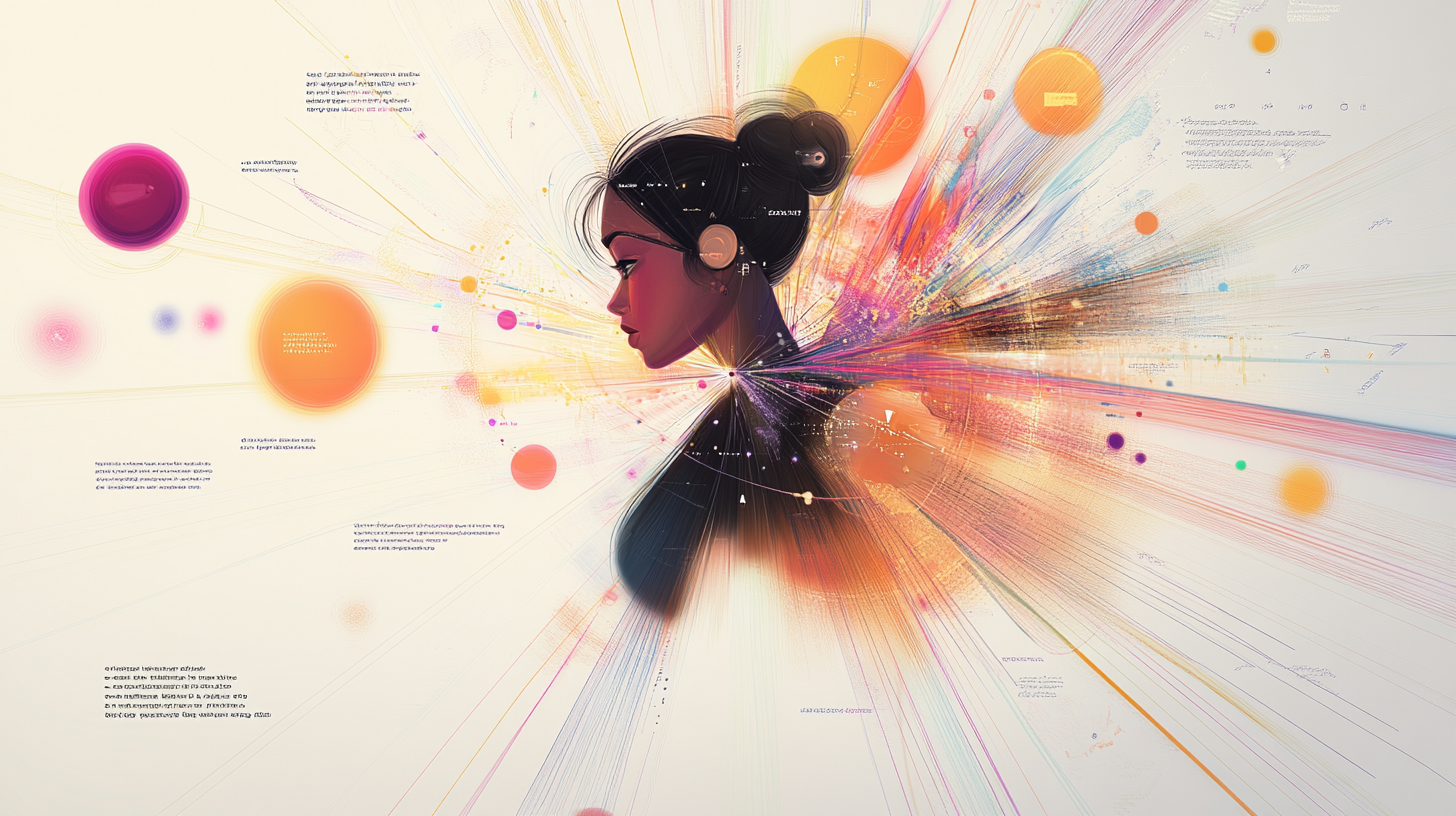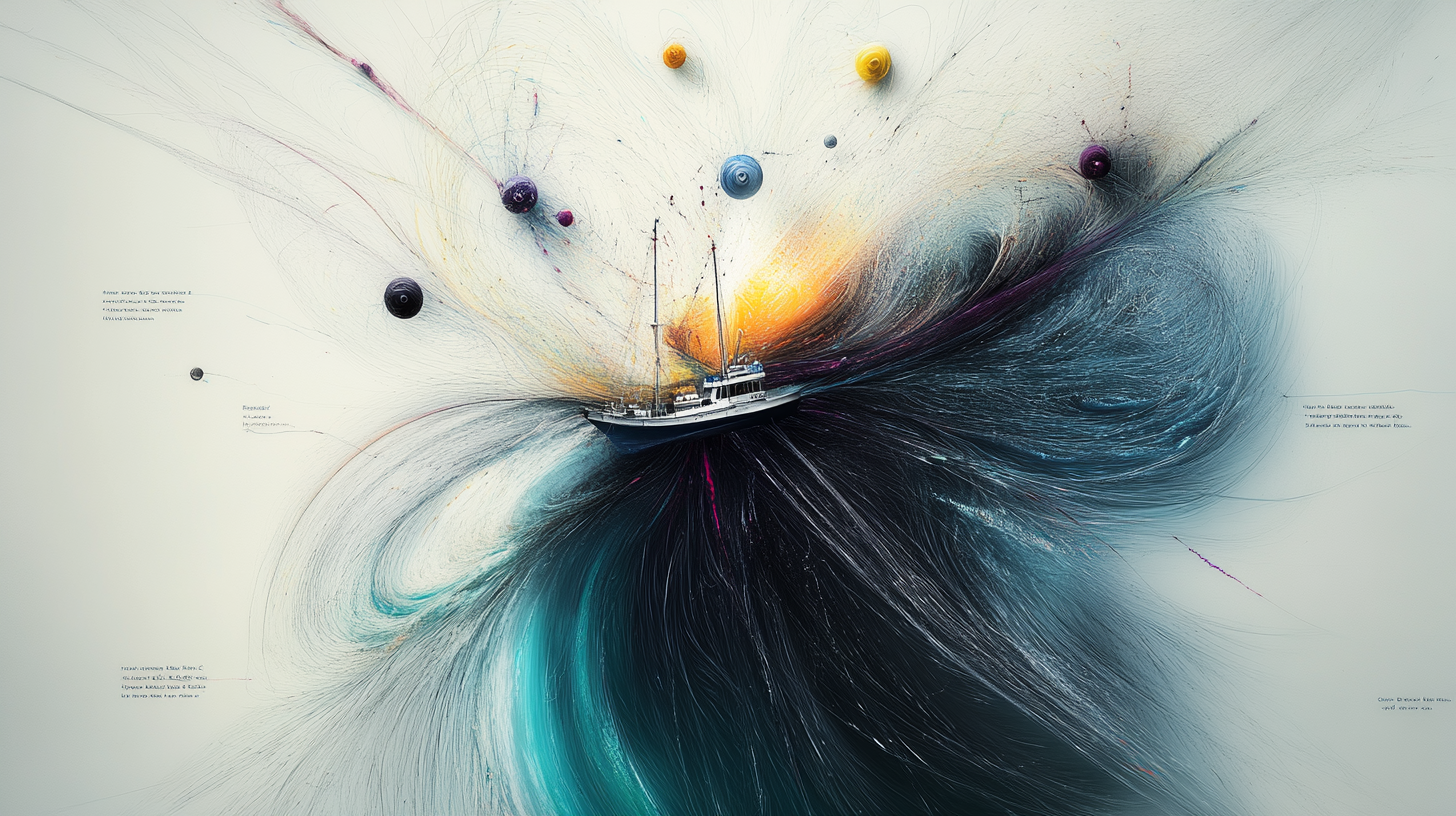The Power of Science Fiction
A Call to Spice Up Your Reading List
What have you read this summer? What book currently rests on your bedside table waiting to be opened? Is it only literature, or do you sometimes allow yourself to dive into other worlds, too? Reading lists for decision-makers are abundant, often filled with guides promising to make you more productive, creative, empathetic, or successful. But what about all of this optimization? What are we doing with all this energy and creativity? What future are we actually working towards?
One thing is clear: staying on the well-trodden paths of the past won’t solve the challenges of today. The problems that they brought about can’t be solved by the same old methods. Our society desperately needs fresh approaches. We need to relearn how to think boldly and visionary. But that’s easier said than done. We quickly fall back into old patterns of thought — „That won’t work!“ — and in doing so, we limit our imagination. What could help us break through these barriers?
My opinion: Read more science fiction! Break free from the here and now, and embark on journeys to other worlds.
From an academic perspective, science fiction is a genre of speculative literature that explores future visions and technological innovations. Unlike fantasy, where magic and supernatural elements play central roles, science fiction remains grounded in the logic of scientific principles and cause-and-effect relationships.
Let me give you four reasons why diving into this genre is worth your time.
1. Science Fiction as a Reflection of the Present
We often think of science fiction as stories set in distant galaxies or about futuristic technologies. But in reality, the genre is deeply rooted in the present. Science fiction allows us to question current societal, technological, and ecological developments by placing them in new contexts. George Orwell’s 1984 (1949) is not just a dystopian novel about a totalitarian future, but a commentary on the political climate of its time. Margaret Atwood’s The Handmaid’s Tale (1985) illustrates how fragile freedom and rights can be—and what happens when gradual changes are met with complacency. Even Herland by Charlotte Perkins Gilman (1915), one of the early feminist science fiction works, offers a sharp critique of patriarchal and capitalist structures of its time, wrapped in a vision of a sustainable society that still feels relevant today.
Science fiction, therefore, offers us a way to critically think about the present while staying on safe ground. It provides a mirror of the real world, enabling us to examine complex problems from a new perspective.
2. Science Fiction as an Archive of Ideas
Science fiction stories also serve as a vast archive of ideas, offering new ways of thinking and potential solutions. Many technological innovations were first imagined in science fiction—whether it’s the Metaverse from Neal Stephenson’s Snow Crash (1992) or the communicators in Star Trek that clearly influenced the later design of mobile phones, like the famous Motorola StarTAC.
Through their creativity, science fiction authors build an unconventional „archive of the future,“ where technological and societal trends are playfully explored. By tapping into this creative space that science fiction opens up, we can inspire and shape the innovations of tomorrow.
3. Science Fiction as a Canvas for Simulation
One of the key strengths of science fiction lies in worldbuilding—the construction of entire worlds with their own rules and social structures. In discussions about new technologies, science fiction goes beyond traditional innovation methods, which often stop at evaluating technical feasibility. In science fiction, new technologies must be embedded into a fully fleshed-out world. Characters must interact, and social dynamics have to be negotiated. A great example is Kim Stanley Robinson’s Ministry for the Future (2020), which describes a world profoundly affected by climate change and explores how new technologies—ranging from geoengineering to artificial intelligence—might be used to save humanity. However, Robinson’s work extends far beyond technological solutions. It shows how these technologies could reshape social, political, and economic structures and highlights the compromises and conflicts that might arise. The protagonists grapple with complex moral questions: How far should we go to save humanity? What sacrifices are acceptable? And how can global decisions be made justly?
Science fiction, therefore, offers a platform where technological innovations can be tested in the context of human and societal interactions. It forces us to think beyond mere technical feasibility and consider the social, ethical, and political implications of new developments. By constructing worlds that act as simulations of possible futures, science fiction enables us to explore the dynamics of change and draw valuable lessons for our present and future.
4. Science Fiction as a Space for the Unknown
Science fiction has always had a particular fascination with the unknown—whether in the form of alien life forms, new ways of living, or radically different social structures. The genre helps us push the boundaries of what we know and cultivate an openness to the unfamiliar. Science fiction is often the genre where people who are otherwise underrepresented or on the margins of society become central figures because of their unique talents or perspectives. Consider works like Octavia Butler’s Parable of the Sower (1993), where a young Black woman not only survives in a post-apocalyptic world but also develops a new philosophy and a vision of hope. Or Ursula K. Le Guin’s The Left Hand of Darkness (1969), which questions gender boundaries by depicting a planet where individuals switch between male and female identities.
In an increasingly diverse society, science fiction offers the opportunity to explore alternative identities and communities that exist beyond normative expectations. It is a space where other ways of being and thinking are not only possible but celebrated. Science fiction challenges us to consider how we engage with the „Other.“ In doing so, it contributes to a deeper understanding of diversity and shows that innovation often arises from embracing the unfamiliar.
Conclusion: More Science Fiction for a Better Future
Science fiction offers far more than thrilling stories about distant galaxies or dystopian worlds. It trains our imagination, teaching us to think beyond the impossible and envision what lies beyond the limits of the achievable. But it’s not just about passive consumption. Each of us can apply “science fiction thinking” to view the present from new perspectives, develop innovative ideas, and mentally test future scenarios. Whether as a source of inspiration, a creative technique, or a practical tool for exploring future strategies, science fiction holds immense value.
So, become a science fiction thinker—because the future belongs to those who dare to imagine it differently.


